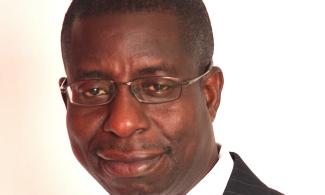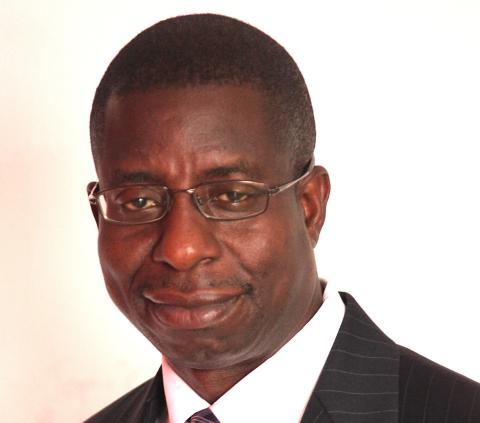
As I watched Air Chief Marshall Alex Badeh, the recently retired Chief of Defence Staff (CDS), elaborate on the confession in his valedictory speech of July 31st that he, as the nation’s number one soldier, presided over a military “that lacked the relevant equipment and motivation to fight,” I searched for signs of shame and penitence. I saw none.

As I watched Air Chief Marshall Alex Badeh, the recently retired Chief of Defence Staff (CDS), elaborate on the confession in his valedictory speech of July 31st that he, as the nation’s number one soldier, presided over a military “that lacked the relevant equipment and motivation to fight,” I searched for signs of shame and penitence. I saw none. That was four days ago when Badeh spoke on Channels Television’s News. “Good thing,” I said to myself, “that he is in mufti and won’t further disgrace his uniform.” But I wasn’t going to let that opinion rest on the TV appearance, so I decided to go beyond the newspaper reports of Badeh’s “pulling out” ceremony to read his valedictory speech in full. Surely, there had to be a hint there of remorse that he had knowingly sent hundreds of his men into battle with the satanic Boko Haram literally bare-handed to their assured death or if “lucky,” grievous bodily harm. There had to be in it some pained acknowledgement of the criminal hypocrisy of deciding to court-martial over a hundred officers and men of the army for insubordination, cowardice, and desertion when they had only insisted on being properly armed for war.
I am sad to report that, again, I saw no evidence of a mortified CDS eager to assuage his conscience or salve the brutalized psyche of the living victims of Boko Haram’s unending spree of bombing, arson, kidnapping, rape, and even conquest and occupation of a large portion of the northeast until March this year. Instead, Badeh, while officially corroborating what even children already knew, chose instead to indulge in self-congratulation and blame previous governments and the press. “Over the years,” he said, “the military was neglected and under-equipped to ensure the survival of certain regimes, while other regimes . . . deliberately reduced the size of the military and underfunded it.”
Considering that Badeh spent four decades in the Air Force, and that he was either near or at the very pinnacle of the military command in the last decade of his career, it is remarkable that he speaks as if the “regimes” he served are excluded from this charge. Too grateful to ex-President Jonathan for appointing him Chief of Air Staff and CDS, he has only praise for him. Despite the damnable fact of the “challenges” he faced, he is “glad to note that a lot was achieved” under him “in the fight against terror.” Actually, Badeh betrays his insincerity by being unsure of the true nature of his achievements other than the personal glory of elevation to the peak of the military command. So in one breath, Badeh says that “a lot was achieved,” and that he recorded “some notable successes,” and yet that it was all “modest successes.” Successes, nonetheless, even if more administrative than military. Such as the feat of a controversial home-made Unmanned Aerial Vehicle that, curiously enough, must be manned (“the UAV pilots we trained are currently the ones flying the Nigerian Air Force UAV’s in the ongoing war against terror”); a defence headquarters annexe complete with a penthouse for receiving dignitaries; the training of pilots to bridge a five-generation gap of squadron leaders and wing commanders, though officers held those ranks in that time notwithstanding; the setting up of an Armed Forces DNA laboratory, and of a radio station to counter “the negative media coverage of the activities of the Armed Forces in the ongoing war against terror,” etc.
But still the questions: what justification did Badeh and his service chiefs have for donning their uniforms adorned with shiny epaulettes and brass buttons when for years on end they ran an army without arms? How could he and the military command in good conscience court-martial any soldier for insisting on his right to be armed before being sent to battle? How could he sleep at night knowing this, or that his men had not even been trained for battle in peace time? Does Badeh not understand that he has confessed to sending his troops on suicide missions? As I wrote, I learned through the virtual grapevine of the Internet that the new Chief of Army Staff, Lt-Gen. Buratai, has ordered a review of the three court-martials in Abuja, Kaduna, and Abuja. He must do better than that. He must abolish them forthwith and reinstate the heroic soldiers who dared to expose our armed forces as all uniform and no guns before their general field commander who waited till the safety of retirement before ratifying their protest. Talk of cowardice!
If there is anything to take from Badeh’s self-exculpatory confession, it is that our military is mortally stricken by the cancer of serial coup plots that politicized it almost beyond cure. As with all cancers, the hope of a cure lies in radical treatment: excision of the tumour, searing through radiation or chemotherapy and more. That translates as a gradual but full-scale structural reorganization of the armed forces and the re-training and re-orientation of its men and women if it is ever to be fit for its purpose: defense of the territorial integrity of the nation. That is the more charitable view of Badeh’s call for a self-reliant military. The less charitable view would be that Badeh and his retired service chiefs are guilty of willful endangerment and war crimes.
Ogaga Ifowodo, [email protected]